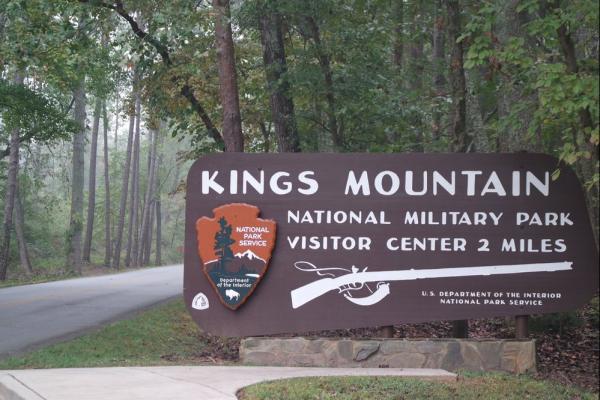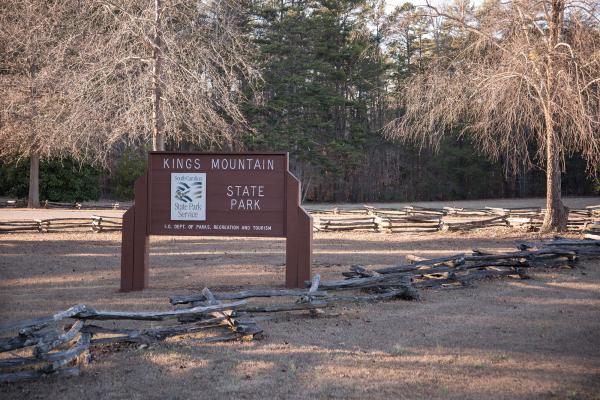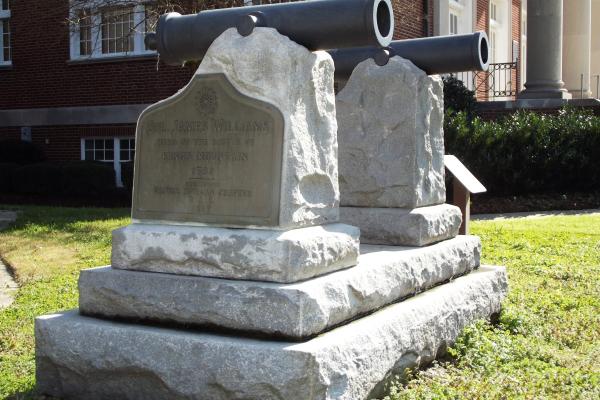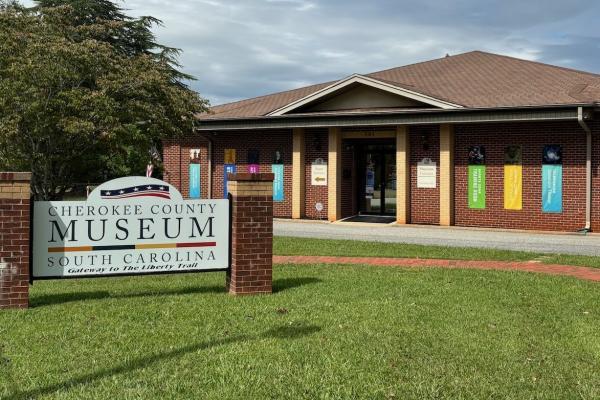The Revolutionary War battle of Kings Mountain in South Carolina proved to be a stinging defeat in the British attempt to secure control of the Southern colonies.
How it ended
American victory. The fierce firefight at Kings Mountain pitted Loyalist militia elements under the command of British major Patrick Ferguson against 900 patriots. The British effort to secure Loyalist support in the South was a failure. Thomas Jefferson called the battle "The turn of the tide of success."
In context
The siege of Charleston in May 1780 was one of the worst American defeats of the Revolutionary War. Another British victory, in the Battle of Camden, followed in August 1780. British general Charles Lord Cornwallis dispatched Major Patrick Ferguson to North Carolina in early September 1780. Ferguson had two tasks: recruit members to fight for the Loyalist militia and protect the Cornwallis’s left flank as he attempted to move through the Carolinas.
Nicknamed Bull Dog by his men, Ferguson soon came up against the Overmountain men, residents of the Carolina Backcountry and the Appalachian mountain range, and from places that would later become the states of Tennessee and Kentucky. American cavalry commander “Light Horse” Harry Lee called them, “A race of hardy men who were familiar with the use of the horse and the rifle, stout, active, patient under privation, and brave.” To the British, however, they were “more savage than the Indians.” From the start Ferguson miscalculated his potential foes, brazenly issuing a proclamation for the local patriots to “desist from their opposition to British arms” or he would “march over the mountains, hang their leaders, and lay their country to waste with fire and sword.” His scare tactics backfired.
On October 7, 1780, Ferguson and the Overmountain men met in a small but significant battle in the War for Independence. It took place on a rocky hilltop in Western South Carolina called Kings Mountain. The rout of the Loyalists there was the first major setback for Britain's southern strategy and started a chain of events that culminated in Cornwallis's surrender at Yorktown.
Before the Battle
Several local patriot militias of the region led by William Campbell, John Sevier, Joseph McDowell, William Hill, Edward Lacy, Benjamin Cleveland, Joseph Winston, William Chronicle and Isaac Shelby decide to take on Ferguson and his men. Learning of their plans, Ferguson opts to retreat from his forward position and pulls back closer to the main body of the British Army. He digs in and fortifies a small 60-foot hill two miles inside the South Carolina border. An American scouting party learns of Ferguson’s position, giving militia commanders the intelligence they need to launch an attack. Sensing an impending battle, the American commanders tell their men, “Don’t wait for the word of command. Let each one of you be your own officer and do the very best you can.” The American plan was simple—to assault the hill from all sides. Campbell tells his men to “shout like Hell and fight like devils.”
During the Battle
October 7. In the early afternoon, the Overmountain men creep quietly toward Ferguson’s position. When the first shot rings out the Americans attack en masse from all sides. Ferguson deploys his Loyalist militia in the center of the hilltop. He remains mounted and personally leads the counterattack against the patriots surging from the southwest. After firing a volley and fixing bayonets, Ferguson’s men blunt the Overmountain men’s advance. But it is only on one side of the hill and the Overmountain men continue unabated to attack from the other sides using the undergrowth and woods to their advantage. One Loyalist later recalled that the Overmountain men looked “like devils from the infernal regions… tall, raw-boned, sinewy with long matted hair.” Ferguson and his men are surrounded, and their additional counterattacks fail to stop the Americans. The Overmountain men continue their yelling and whooping as they gain ground.
With his defensive perimeter shrinking, Ferguson tries to lead his men past the onslaught. Mounted on his horse, he proves the perfect target for his crack shot opponents. He is hit multiple times, his body hanging from his horse as his mount flees down the hill.
Shortly after Ferguson’s death, the Loyalists surrender.
Aftermath
The American riflemen are victorious but there is a cost. One young Overmountain man later recalled, “The dead lay in heaps on all sides, while the groans of the wounded were heard in every direction. I could not help turning away from the scene before me, with horror, and though exalting in the victory, could not refrain from shedding tears.”
At Kings Mountain the Backcountry militiamen demonstrate that they can coordinate and execute a battle plan. Their success encourages other patriot revolutionaries. General George Washington later proclaims to his own army that “The crude, spirited, hardy determined volunteers who crossed the mountains served as proof of the spirit and resources of the country.” Loyalist elements in North Carolina and South Carolina are intimidated. Kings Mountain sets the scene for an American military resurgence. With the loss of his western flank force, Cornwallis falls back into South Carolina, delaying his planned invasion of North Carolina.
What's Nearby
Explore more of The Liberty Trail by visiting these nearby attractions.


Gaffney, SC 29341

Blacksburg, SC 29702

Gaffney, SC 29340
Gaffney, SC 29340




